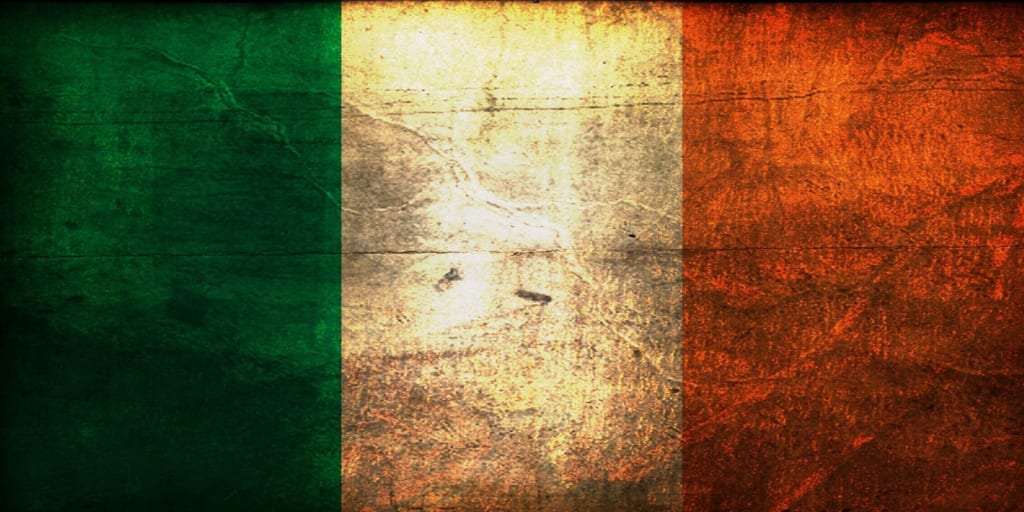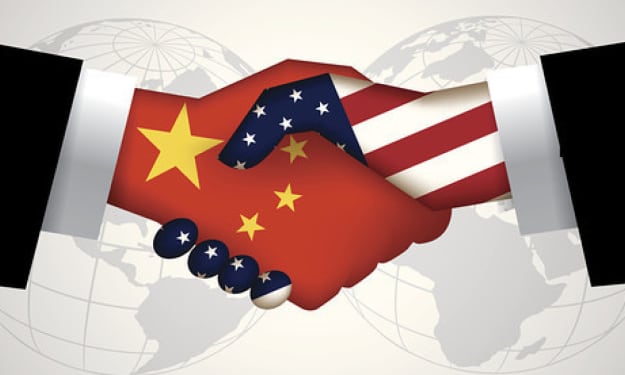A United Ireland
A Vouch for a United Island

Ireland has been torn between two ideological religions; The Protestants in the North, and the Catholics in the South. This divide has led to bloodshed, and political turmoil for the Irish. As a proud Irish-American descendant, I would argue that what’s best for the island is a united Ireland. Economic status would be revamped drastically for the better. The benefit towards enterprise and business will generate employment and a better condition under infrastructure. The costs generated towards the upkeep of the hard border should be dispersed towards other factions of infrastructure that support the quality of living standards, especially in and around the border towns. Political identity will become political individuality in a united Ireland. Conflict will see a drastic decline, if not an end; but there are always factors that come into play when the game of diplomatic chess is being played.
The vouch for a united Ireland started long before this testimony you read before you now. The 1916 Easter Rising riots in Dublin was five-day rebellion against British rule in the country. A brutal and swift response from British military forces ended the multi-day chaos and ultimately proved the efforts of the locals to be a failure. Win or lose, this moment in time was the beginning of the thought towards an independent Irish republic. Sinn Fein at the time was led by Eamonn De Valera. De Valera would respond to recent political forthcomings by establishing the Dáil Éireann (Assembly of Ireland). This comes to be the lower house, and core chamber, of the Oireachtas, the Irish legislature. This also includes the President of Ireland and Seanad Éireann (the upper house). 1921-22 would see an outbreak of civil war between the North and the South after the declaration of the Anglo-Irish Treaty. In reality, both sides can’t take responsibility for their actions. This bloodshed is victimized on both sides of the border to this day and it’s disgustingly hypocritical in my outside opinion.
De Valera would eventually move the Republic towards a new constitution that abolished the “free state” concept and proclaimed Eire. A sovereign, independent, democratic state. This would all eventually crumble in 1948-49 when a poor economy forced De Valera out and John Costello becomes the Prime Minister of a broad political coalition. Erie would then become the Republic of Ireland and leave the British common wealth. 1959 “Sean Lemass becomes Fianna Fail leader and prime minister, launches economic modernization that sees Ireland move from mainly agricultural base and eventually join European Economic Community.” (BBC) The history of Ireland has always been about progression. This economic diversity can only be sustained and elevated with the north's input and participation. Luckily there have been implications put into place to see that opportunity unfold itself. This coming in the form of the Anglo-Irish agreement which came in 1985 and gave the Republic and the United Kingdom the opportunity to end the violence in Northern Ireland and brought a stability to the region where there was none before. The Good Friday agreement in 1998 established a dual role in political establishment in the North, giving Unionists and Nationalists equal power within Northern Ireland. If they can come together politically North of the border, why not unify as a whole country?
With this progressive record on hand, it almost seems incredibly incomplete. The political history of Ireland comes off as a tale that has yet to be finished. As an outsider looking in, I question why the North decides to compromise on their political convictions and allow Republic input yet to scorn the idea of unity simply on the bias of other ideals. Ideals much greater than political progression. Religion. Religion is one of the most conservative conduits used by society to date. In Ireland though it’s gone for broke. Religious differences have split the island since its inception. Public Figures like Martin McGuinness of the IRA and a well-known Catholic, and Ian Paisley a Protestant loyalist lead bloody crusades between the Nationalists and Unionist parties of the Island. Dennis Bradley, a journalist for the Irish Times and former Vice-chairman of the Northern Irish Policing Board, had the opportunity to speak with McGuinness before his passing in March of 2017, on an unfortunate altercation that took place where mistaken identity resulted in Bradley’s hospitalization; “McGuinness called to my house a few weeks later to see how I was recovering and said to me that it wasn’t me they were after, it was him. I understood completely what he meant, and I agreed completely with what he was saying. He was stating that unless dissident republicanism supplanted him and his ilk with military competence coupled with enough community support, they were destined to be no more than a nuisance who would consistently fracture and become a subplot in the efforts to bring about a new and united Ireland.”(Bradley) McGuinness was right. The Republic needed to move on from violence to remain politically viable. Unfortunately, these ambitions died with Mr. McGuinness, as the “New IRA” have found audacity in their youth in repelling any notion of peace within the border towns. While their ambitions were bold, the Irish Republican Army’s politics have been and forever will be, soiled in controversy. Religion and policy don’t go hand and hand. Church and state must always be separated. A united Ireland today would bring balance to an unbalanced political system rigged with religious hypocrisies. This would establish religious freedom across all of Ireland and hopefully end decades of violence between each end of the border.
Today one factor alone stops the argument completely for a united Ireland. The border between Northern Ireland, and the Republic of Ireland. The flow of goods that pass through the Northern Irish and Republic of Ireland border are goods that are necessary for societal production. The Troubles in 1968 brought hard line security to the border which made it increasingly harder for goods to enter and exit the countries up until the peace talks of the 90s. Since the Republics move to a European based trade system, the European Union has eased the pressure on trade in the island. The establishment of the Single Market and Customs Union as well as the Common Travel Area agreement, have made trade routes much more consumer friendly and allow citizens to conduct business without hassle. A study cited by the Irish Times reviews data from both the North and the South. When conducting research for the Northern Irish economic system, Renger van Nieuwkoon, the conductor of the experiment, mentioned; “The systems were very different, and a lot of data was not available for Northern Ireland as an independent entity. Its data was included in that of the UK.” (Nieuwkoon) Unfortunately, with Brexit looming. Northern Ireland may see a day where they will have to face a decision on whether to unite with Ireland and keep these agreements intact, or stand alongside Brittan as they dismantle their progressive trade system and harden the border between the North and the South, bringing hostility back where it no longer needs to reside.
In retrospect, unity is an idea any decent human being can get behind. The problem is, not all human beings are decent. Unity in Ireland is conceptualized to be some sort of fathom. Society knows it needs to happen, but old values linger hard, and pride is a stubborn attribute. When you combine those old values and stubborn pride with political infrastructure and the economic conversation, you get inconsistency. That inconsistency is what leads to frustration and violence. Ireland for too long has been inconsistent with their political values. That is in part because of its geographical division. This can all simply be solved by unity.
Worked Cited
“Anglo-Irish Treaty – 6 December 1921 (Page 1) | Treaty.” National Archives, treaty.nationalarchives.ie/document-gallery/anglo-irish-treaty-6-december-1921/anglo-irish-treaty-6-december-1921-page-1/.
Bradley, Denis. “Good May Come out of the Evil of Lyra McKee's Killing.” The Irish Times, The Irish Times, 19 Apr. 2019, www.irishtimes.com/opinion/good-may-come-out-of-the-evil-of-lyra-mckee-s-killing-1.3865961.
“Figure 3a from: Broad G (2016) Checklist of British and Irish Hymenoptera - Ichneumonidae. Biodiversity Data Journal 4: e9042. Https://Doi.org/10.3897/BDJ.4.e9042.” Modeling Irish Unification , 17 Nov. 2015, pp. 1–84., doi:10.3897/bdj.4.e9042.figure3a.
“Ireland Profile - Timeline.” BBC News, BBC, 18 May 2018, www.bbc.com/news/world-europe-17480250.
“What Was the Easter Rising?” What Was the Easter Rising? | Century Ireland, www.rte.ie/centuryireland/index.php/articles/what-was-the-easter-rising.
McGee, Harry. “Both Republic and North 'Could Benefit from United Ireland'.” The Irish Times, The Irish Times, 10 Oct. 2016, www.irishtimes.com/news/crime-and-law/both-republic-and-north-could-benefit-from-united-ireland-1.2823081.
O'Carroll, Lisa. “Brexit and the Irish Border Question Explained.” The Guardian, Guardian News and Media, 19 Sept. 2018, www.theguardian.com/uk-news/2018/sep/19/brexit-and-the-irish-border-question-explained.
“United Ireland Would Boost Growth, Jobs and Living Standards - Carthy.” Sinn Féin, www.sinnfein.ie/contents/48211.
About the Creator
Benjamin Reese
My degree is in Communications with a focus on Journalism and a minor in Political Science.






Comments
There are no comments for this story
Be the first to respond and start the conversation.